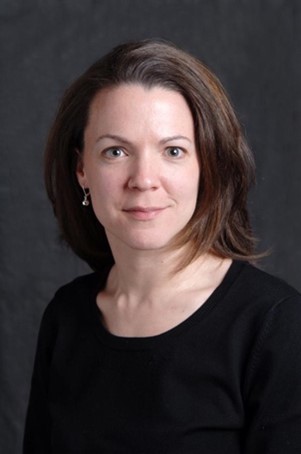NIDA Summer Internship Program: Accepting Applications! |
|
 Do you know any undergraduates who are interested in participating in an addiction science summer internship? Encourage them to apply to the NIDA Summer Research Internship Program! Do you know any undergraduates who are interested in participating in an addiction science summer internship? Encourage them to apply to the NIDA Summer Research Internship Program!
This program supports students with a focus on increasing underrepresented populations in substance use and addiction research. Through this program, undergraduates age 18 and older are introduced to the field of substance use and addiction research by participating in research internships with NIDA’s distinguished scientists at universities across the United States. Students work with leading scientists for eight weeks during the summer.
The internship may include laboratory experiments, data collection, data analysis, formal courses, participation in lab meetings, patient interviews, manuscript preparation, and literature reviews. In addition, it is expected that each intern will deliver a formal presentation on their research project at the end of the internship.
The program covers travel and housing along with a salary of $15.00/hour. For more information, please visit NIDA Summer Research Internship Program website. The deadline to apply is February 11, 2022.
· · · · · · · · · · · · ·
· · · · · · · · · · · · · · · · · · · · · · ·
Making Addiction Treatment More Realistic and Pragmatic: The Perfect Should Not be the Enemy of the Good
 In this piece published in Health Affairs and on the NIDA website, NIDA Director Dr. Nora Volkow argues that there is an urgent need for a nationwide, coordinated response to the drug overdose crisis in the United States that applies innovative strategies and new ways of thinking about clinical outcomes. In this piece published in Health Affairs and on the NIDA website, NIDA Director Dr. Nora Volkow argues that there is an urgent need for a nationwide, coordinated response to the drug overdose crisis in the United States that applies innovative strategies and new ways of thinking about clinical outcomes.
Data from 2020 shows that only 13% of people with substance use disorders receive any treatment, and only about 11% of people with opioid use disorder receive one of the 3 safe medications that could help them stay alive and in recovery.
"The magnitude of this crisis demands out-of-the-box thinking and willingness to jettison old, unhelpful, and unsupported assumptions about what treatment and recovery need to look like. Among them is the traditional view that abstinence is the sole aim and only valid outcome of addiction treatment," Dr. Volkow writes, advocating for consideration of different approaches, like focusing on reduced use instead of no use, ending stigma, new ways of thinking about return to use, and more.
Read the article here. |
CTN Trial Progress
 Randomizations for Active Studies as of the January 13 trial Progress Report. Randomizations for Active Studies as of the January 13 trial Progress Report.
CTN-0060-A-1 - Enrolled 791
CTN-0079-A-1 - Enrolled 43
CTN-0080 - Enrolled 76
CTN-0097 - Enrolled 256
CTN-0098 - Enrolled 20
CTN-0099 - Enrolled 865
CTN-0099-A-1 - Enrolled 85
CTN-0100
Discontinuation - Enrolled 30
Retention - Enrolled 141
CTN-0101 - Enrolled 104
CTN-0107 - Enrolled 3
|
· · · · · · · · · · · · · · · · · · · · · · · · · · · · · · · · · · · · · · · ·
· · · · · · · · · · · · · · · · · · · · · · ·
CTN Youth SIG Webinar, January 28, 2022
Increasing Access to Substance Use Treatment for Justice-Involved Youth: Building Bridges Between the Justice, Treatment, and Family Systems
 Presenter: Katherine Elkington, PhD, Associate Professor of Medical Psychology (in Psychiatry), Columbia University and New York State Psychiatric Institute Presenter: Katherine Elkington, PhD, Associate Professor of Medical Psychology (in Psychiatry), Columbia University and New York State Psychiatric Institute
Friday, January 28, 2022 (11am-12pm ET)
Join Zoom Meeting
Meeting ID: 910 5122 3250
Passcode: 609671; Phone: 1-301-715*8592
In her presentation, Dr. Elkington will describe multi-level barriers to treatment for justice-involved youth, explore the integrated use of the Behavioral Health Care Cascade and ecological theory to conceptualize points of intervention, and describe initial findings from two different interventions that target various aspects of the justice, behavioral health, and family/youth-systems to improve treatment access.
Dr. Elkington is a licensed clinical psychologist, Associate Professor of Medical Clinical Psychology, in Psychiatry, at Columbia University and a Research Scientist and the New York State Psychiatric Institute. She serves as the Director of the Center for Behavioral Health and Youth Justice (CBHJY) and as the Training Director of the T32 Postdoctoral Fellowship at the HIV Center for Clinical and Behavioral Studies. Dr. Elkington has extensive research and clinical expertise in the prevalence, correlates, and prevention/intervention of mental illness, substance use/disorders and HIV risk behaviors among justice-involved populations. Most recently, her work has focused on the development and evaluation of implementation interventions to increase access to behavioral health and health services, of which a centerpiece is building cross-system relationships between justice and community treatment systems.
· · · · · · · · · · · · · · · · · · · · · · · · · · · · · · · · · · · · · · · ·
· · · · · · · · · · · · · · · · · · · · · · ·
· · · · · · · · · · · · · · · · · · · · · · · · · · · · · · · · · · · · · · · ·
· · · · · · · · · · · · · · · · · · · · · · ·
CCC Updates
 The Clinical Coordinating Center (CCC) at Emmes would like to introduce Andel Joanne Frazier (jfrazier@emmes.com), the new Clinical Training Specialist. Andel will be coordinating the CTN Web Seminar Series, study training planning and implementation, and other CTN training activities. Join us in welcoming her to the network. The Clinical Coordinating Center (CCC) at Emmes would like to introduce Andel Joanne Frazier (jfrazier@emmes.com), the new Clinical Training Specialist. Andel will be coordinating the CTN Web Seminar Series, study training planning and implementation, and other CTN training activities. Join us in welcoming her to the network.
In 2022, the CCC would like to incorporate in the CTN Web Seminar Series topics of interest to CTN researchers, covering aspects of clinical trial conduct, methodologies, CTN policies and procedures, clinical trial tools, site management, regulatory, safety, quality assurance, data management, data analyses and research results, and many of other topics common to the industry and specific to the network. Accordingly, we welcome input from our CTN research teams, node coordinators, and others on topics of interest and based on training needs. Any and all suggestions are welcome. Please contact Andel Frazier at jfrazier@emmes.com to share your ideas.
The CCC is now offering eLearning for Clinical Trial Fundamentals through on-demand courses and live webinars; reference the list below for upcoming courses. This training is available to research teams affiliated with the NIDA Clinical Trials Network on a first-come-first-serve basis. Notifications for open registration are circulated via email for the live interactive webinars, which will include a link to register. When available, this information is also posted in the CTN Website Calendar (at https://ctndsc2.com/). On demand courses are available upon request (contact jfrazier@emmes.com or CTNtraining@emmes.com).
- Interactive Webinars (Course information can be found in the CTN Website Calendar https://ctndsc2.com/)
- Coaching Skills for Leaders (21Jan2022)
- Electronic Medical Records: Approaches for Ensuring Source Document and 21 CFR Part 11 Required Components (27Jan2022)
- Developing Clinical Study Budgets for Sponsors (07Feb2022)
- ClinicalTrials.Gov Requirements: Clinical Trial Registration and Trial Results Reporting, Expanded Registry and Results Data Bank (24Feb2022)
- On-demand eLearning Courses
· · · · · · · · · · · · · · · · · · · · · · · · · · · · · · · · · · · · · · · ·
· · · · · · · · · · · · · · · · · · · · · · ·
Apply for the Fall 2022 Postdoctoral Traineeship in Substance Use Disorders Treatment and Services at UCSF
 The University of California, San Francisco is currently accepting applications to its NIDA-funded two-year postdoctoral research training program in substance use treatment and services research. Our program is one of the few that trains scientists in treatment and services research. Scholars work with a preceptor to design and implement studies on treatment of substance use disorders (SUD), including nicotine, cannabis, opioids, and other substances. Scholars also select a specific area of focus for independent research. Current research interests of faculty include trials of efficacy and effectiveness of psychosocial and pharmacologic treatment of substance use disorders, including: The University of California, San Francisco is currently accepting applications to its NIDA-funded two-year postdoctoral research training program in substance use treatment and services research. Our program is one of the few that trains scientists in treatment and services research. Scholars work with a preceptor to design and implement studies on treatment of substance use disorders (SUD), including nicotine, cannabis, opioids, and other substances. Scholars also select a specific area of focus for independent research. Current research interests of faculty include trials of efficacy and effectiveness of psychosocial and pharmacologic treatment of substance use disorders, including:
- Substance use disorders including cannabis, tobacco and opioids
- Innovative methodology, including internet-based studies
- Treatment of complex patients in health care settings
- Diagnostic techniques and research on treatment tailored for HIV-positive substance users with psychiatric and medical disorders
- Research on provision of services to substance-using populations
- Instrument development in substance use treatment
A variety of university-affiliated and community substance use treatment programs are available as research sites. These include inpatient- and outpatient-setting programs that treat a range of problems related to SUD treatment, including dependence on stimulants, cannabis, nicotine, alcohol, and opiates. Our program encourages close research involvement with a preceptor, and involvement in selected classes, seminars, and grant preparation.
The training program is supported in part by the Western States Node of the NIDA Clinical Trials Network. Resources from other significant extramural funding and R01-level grants are also routinely available to scholars.
More information can be found at:
https://psychiatry.ucsf.edu/SUDTSR/ and https://psychiatry.ucsf.edu/SUDTSR/faq
To Apply: Submit a cover letter, curriculum vitae, statement of research interests, and representative work or dissertation chapters, and 2 letters of reference to Jaime Smith, CCRP, Division Administrator: jaime.smith@ucsf.edu. Applicants must have completed their doctoral degree and be a U.S. citizen or have Lawful Permanent Residency (green card) status at the time of appointment. Letters of reference should be sent directly from the recommenders to Ms. Smith.
· · · · · · · · · · · · · · · · · · · · · · · · · · · · · · · · · · · · · · · ·
· · · · · · · · · · · · · · · · · · · · · · ·
Funding Announcement
- NIH HEAL Data2Action Innovation Projects (R61/R33). FOA number: RFA-DA-22-051. Letter of intent due February 10, 2022; applications due March 10, 2022. These phased awards are intended to support local efforts to improve use of data to drive prediction and real-time proactive responses to the overdose crisis. Additional Data2Action (D2A) Program projects are also seeking applications. Find out more here.
|
Also of Interest
|
   
|